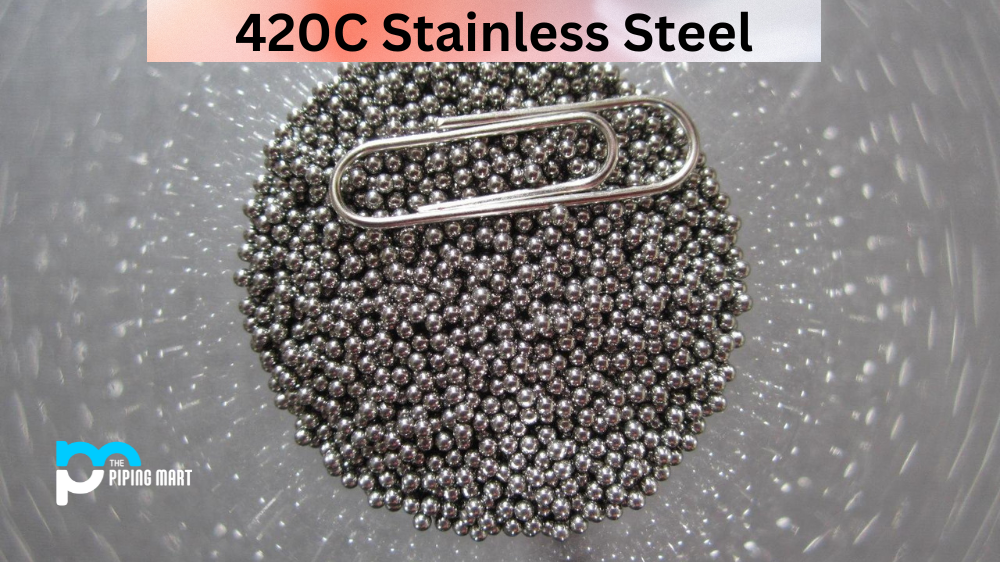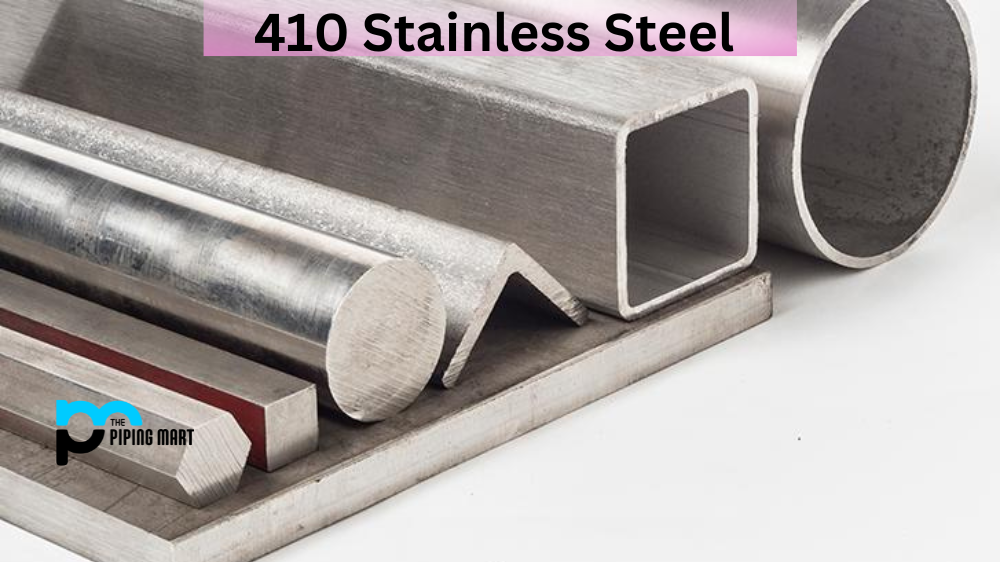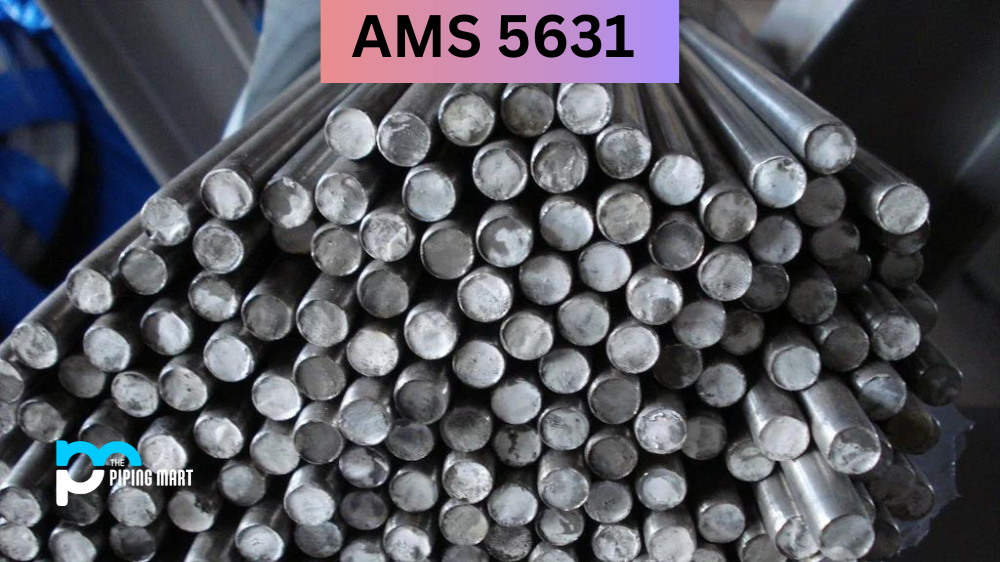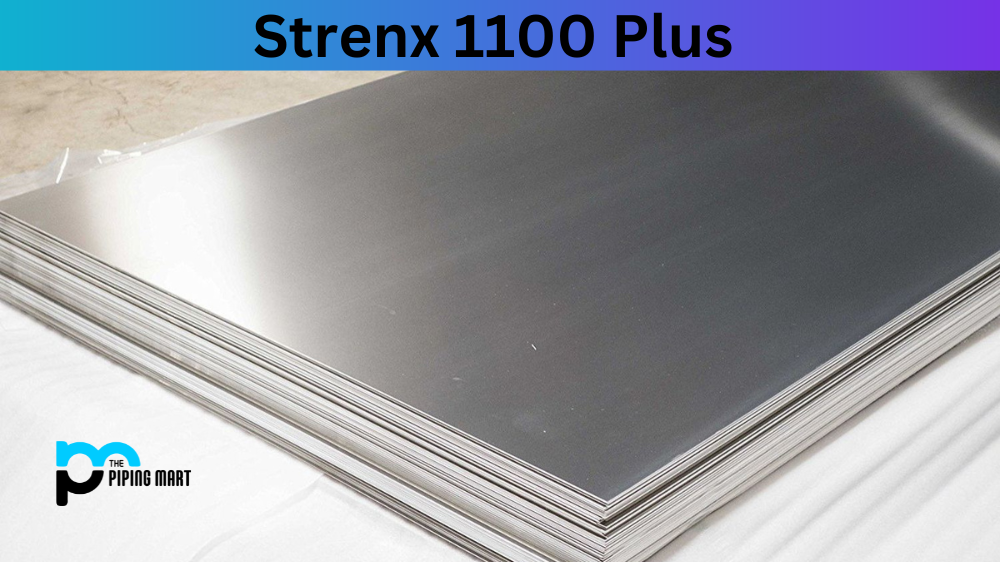420C stainless steel is a popular grade of stainless steel that is frequently used in many different industries. It has a high carbon content that provides strength and durability while also having excellent corrosion resistance. This article will discuss the composition, physical properties, mechanical properties, and uses of 420C stainless steel.
AISI 420C Composition
The chemical composition of (UNS S42000) is as follows: iron (Fe) up to 98.5%, carbon (C) 0.15-0.40%, and chromium (Cr) 12-14%. This combination makes it a very durable metal with excellent corrosion resistance and superior strength compared to other grades of stainless steel. Additionally, it has great wear resistance, which makes it perfect for applications that require frequent use or exposure to harsh environments.
|
%C
|
%Si
|
%Mn
|
%P
|
%S
|
%Cr
|
|---|---|---|---|---|---|
|
0.43-0.50
|
1.00 max
|
1.00 max
|
0.040 max
|
0.030 max
|
12.50-14.50
|
AISI 420C Physical Properties
The physical properties of 420C SS are impressive as well. It has a melting point of around 1450°F, which makes it ideal for welding applications where temperatures must be kept consistent throughout the process. It also has an electrical resistivity range between 30-55 μΩ-cm at 68°F, making it suitable for electrical components such as wiring and connectors. Lastly, its thermal conductivity is about 17 W/mK at 68°F, making it a good choice for heat exchangers and other thermal applications where heat needs to be consistently managed during operation.
|
Property
|
Symbol
|
U.o.M.
|
Type
|
Notes
|
Values
|
|---|---|---|---|---|---|
|
Density
|
δ
|
[g/cm3]
|
Physical
|
Room temp.
|
7.75
|
|
Young’s modulus
|
E
|
[GPa]
|
Mechanical
|
–
|
205
|
|
Specific heat
|
c
|
[J/kg-K]
|
Thermal
|
Room temp.
|
450
|
|
Coefficient of linear thermal expansion
|
α
|
[10^-6/ºC]
|
Thermal
|
(ΔT=0-100°C)
|
10.4
|
|
Thermal conductivity
|
λ
|
[W/(m·K)]
|
Thermal
|
Room temp.
|
27.6
|
|
Electric resistivity
|
ρ
|
[Ω*m*10^-9]
|
Electric
|
–
|
720
|
|
Relative magnetic permeability
|
µ
|
–
|
Magnetic
|
Not hardened
|
> 600
|
AISI 420C Mechanical Properties
The mechanical properties of grade 420C are equally impressive due to its high carbon content, which gives it superior strength. Its tensile strength is between 450-600 MPa, while its yield strength ranges from 265-425 MPa at room temperature, depending on the size and shape of the material being tested. Additionally, its impact toughness can reach up to 40 J/cm2 when tested at -40°F making it ideal for any application requiring high impact resistance in cold conditions such as outdoor equipment or cold storage areas.
|
Property
|
Type
|
U.o.M.
|
Values
|
U.o.M.
|
Values
|
|---|---|---|---|---|---|
|
Hardness
|
Mechanical
|
[HRC]
|
52 – 60
|
–
|
–
|
|
Ultimate tensile strength
|
Mechanical
|
[MPa]
|
1700 – 1900
|
[psix10^3]
|
250 – 275
|
|
Service temperature
|
Thermal
|
[ºC]
|
0 / 400
|
[ºF]
|
32 – 752
|
AISI 420C Equivalent
|
ITA
|
USA
|
GER
|
FRA
|
UK
|
RUS
|
CHN
|
JAP
|
|---|---|---|---|---|---|---|---|
|
X46Cr13
|
420C
|
1.4034
|
Z 34 C 14
|
–
|
40 Kh 13
|
4Cr13
|
–
|
AISI 420C Thermal Properties
|
Property
|
Type
|
U.o.M.
|
Values
|
U.o.M.
|
Values
|
|---|---|---|---|---|---|
|
Hardness
|
Mechanical
|
[HRC]
|
52 – 60
|
–
|
–
|
|
Ultimate tensile strength
|
Mechanical
|
[MPa]
|
1700 – 1900
|
[psix10^3]
|
250 – 275
|
|
Service temperature
|
Thermal
|
[ºC]
|
0 / 400
|
[ºF]
|
32 – 752
|
AISI 420C Uses
Alloy 420C has emerged as one of the most popular materials for tool making and construction due to its impressive durability and strength. It is commonly used to create medical instruments and is also a popular choice for corrosion-resistant constructions such as exhaust systems, brackets and turbine components. This type of stainless steel is highly resistant to abrasion, so it’s also often used in the manufacturing of high-performance bearings and components for the automotive industry. Not only is 420C stainless steel very durable, but its anti-corrosion properties make it ideal for use in water tanks, marine components, chemical processing plants, and pharmaceutical equipment. Overall, 420C stainless steel offers exceptional resistance to corrosion along with great tensile strength, making it an essential material in numerous industries requiring longevity in their products.
Conclusion
In conclusion, 420C stainless steel offers some impressive benefits, including excellent corrosion resistance, superior strength and wear resistance, along with good electrical and thermal properties making it an ideal choice for many different industries such as automotive manufacturing, food processing, medical device manufacturing and more. Its ability to withstand extreme temperatures makes it perfect for welding applications as well as any other application requiring heat management during operation or exposure to harsh environmental conditions, such as outdoor equipment or cold storage areas where impact toughness is needed most. Overall, this unique grade of stainless steel offers outstanding performance in a variety of different settings, making it an excellent option when selecting materials for your next project.

Pipingmart is a B2B portal that specializes in metal, industrial and piping items. Additionally, we share the latest information and information about materials, products and various types of grades to assist businesses that are involved in this business.




